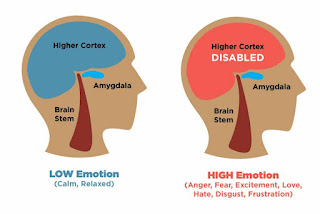Future Challenges in Education
The increasing technological developments have offered various and more creative approaches in teaching. Traditional methods in teaching-learning activities have been claimed to disappear by 2030. Some believe that technologies are unable to replace how the classroom teaching-learning basis is used to. This is to explore the challenges and shots in the field of future education.
One of the common and realistic challenges for future education is how the way children learn today. Once most of the children are accessible to smartphone and internet, learning sources are available on their hand. YouTube and AI (artificial intelligence) are even more updated than what teachers can do. Topics with sufficient and clear instruction are rich which allow children to be autodidactic. This also allows children to change the way they study as previous generation did.
Moreover, the monotonous teaching approach in the classroom setting is taught to be a significant factor to disappearance of traditional practices in teaching-learning context. This could be due to the abundance of administrative requirement such as course designs for each subject for teachers to meet. This is absolutely time consuming and consequently the teachers' focus is not likely to teaching approach and material development. On the other hand, children find more interesting media and attractive sources on YouTubes. It is understandable then that the students could not find the class interesting. Therefore, sending children to schools could be a last option for parents for their children's academic success.
The question can be raised then "Does the teacher as one of the professional preferences still exist?". It is definitely a difficult question to answer. The presence of more useful technologies for academic sources are truly apparent. This influences what and how children can learn. However, that situation does not mean negative in some way. Educators in general can then take into consideration on how cope with that challenge. Educator should be able to fill the gaps in which those points are not possibly found in the future education as predicted: strengthening emotional attachment between children and promoting a better social skill.
Emotional attachment between learners can only be achieved if they cooperate and support one another. This is what the traditional classroom setting offers. Once the learners gathered in the same class, they are benefitted not only cognitively or academically, but also psychologically. Classroom setting offers more opportunities for learners to understand their classmates' both academic and personal problems. From that point of view, they basically maintain and develop such empathy to their classmates' academic or personal failure. Recognizing the fact that they need to grow together, one can extend assistance to the next. Therefore, they can become more intimate as they can share their problems and so the solutions are.
Furthermore, traditional schools could also offer tremendous opportunities for their students to develop social skills. The students' interaction in real life at schools facilitate and equip students with countless knowledge and experience on how to be 'human' in society. For example, students can help people who are in need financially simply because they are trained to be more sensitive to other students' problems at school. Therefore, the students become more easily adaptable and acceptable in a wider scale of society.
In brief, challenges and shot come hand in hand even in the field of education. The fast development in technology cannot completely replace the human's role to do with education. Its development should not be perceived as a threat, but we need to embrace it to help students more successful both personally and professionally.


Comments
Post a Comment